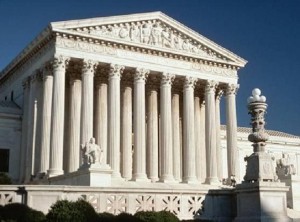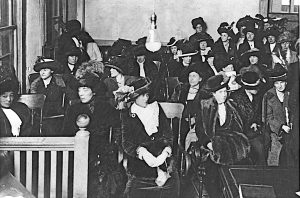What Might Explain D.C. Grand Juries’ Failures to Indict?
I once had the privilege of serving on a federal grand jury in Washington DC. I describe it is as a “privilege” not out of any reflexive paean to the criminal justice system, which has many flaws, and not because I was especially thrilled to have been selected. My service was particularly arduous; we met from 8am to 4pm five days a week, after which I would complete all of my work each day as a full-time law firm associate. And that continued for five weeks straight, leaving me, by the end, completely exhausted. The sense of privilege I felt came not from the system or the process, but from having the experience of serving with a group of fellow citizens from all walks of life who were all dedicated to completing one task: determining if the government had enough evidence to prosecute someone.
Based on that experience, it was with considerable interest that I read news reports that several grand juries in the District of D.C. have recently refused to return indictments in high-profile cases involving protesters. Three successive grand juries, for example, refused to indict protester Sydney Reid on charges of assaulting a federal law enforcement officer, when an FBI agent assisting in blocking Reid from interfering with an arrest suffered cuts or scrapes on her hand. Why did they refuse? Over on the Volokh Conspiracy, Prof. Josh Blackman suggests that while it’s possible DC grand juries “are carefully attuned to the gradation between felonies and misdemeanors,” he offers an apparently more plausible explanation: DC jurors are a bunch of hacks. DC US Attorney Jeanine Pirro has a similar view.
There’s a temptation, famously mocked by film critic Pauline Kael, to think that the things you and your friends care about are the things that everyone cares about. But despite the attention law professors and lawyers generally pay to politics, much of the rest of the US population is far less interested. I would hesitate to assume that the average grand juror in DC, or LA or Oklahoma City or anywhere else is as steeped in partisan politics as your average social media poster, or law school denizen, or avid consumer of news.
I don’t know what happened in these three grand juries, or in the others that have refused to indict protesters in DC and LA. I did see firsthand however that it is really hard for a requested indictment to fail. There were jurors on my grand jury that were more skeptical of the police, and there was at least one juror who had qualms about the over-criminalization of drug possession. Some defendants were more sympathetic than others. But the few “no” votes on an indictment almost never came anywhere near the 12 necessary to refuse to return a true bill. If the government had evidence on each element, we voted to indict.



